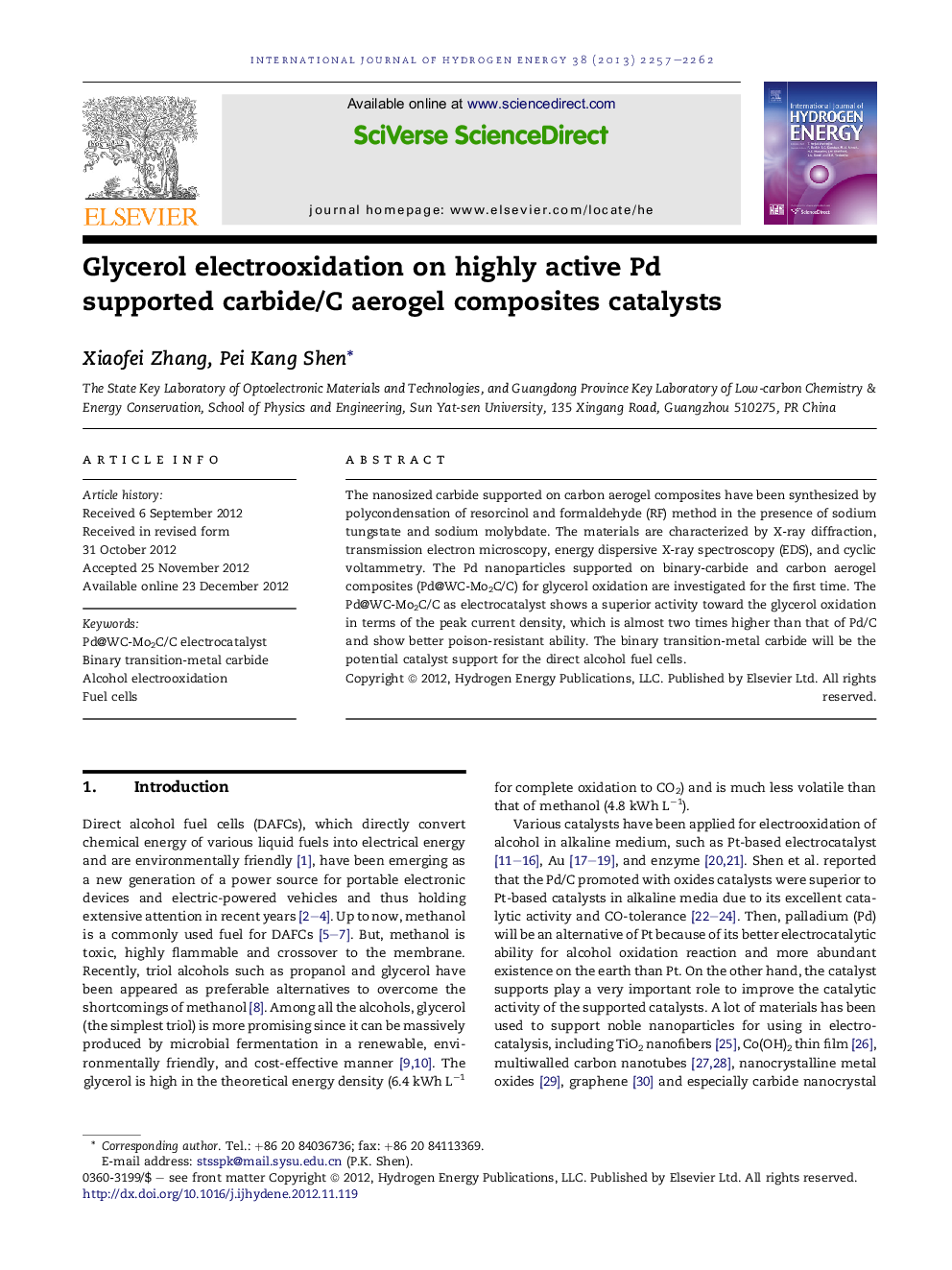| Article ID | Journal | Published Year | Pages | File Type |
|---|---|---|---|---|
| 1274089 | International Journal of Hydrogen Energy | 2013 | 6 Pages |
The nanosized carbide supported on carbon aerogel composites have been synthesized by polycondensation of resorcinol and formaldehyde (RF) method in the presence of sodium tungstate and sodium molybdate. The materials are characterized by X-ray diffraction, transmission electron microscopy, energy dispersive X-ray spectroscopy (EDS), and cyclic voltammetry. The Pd nanoparticles supported on binary-carbide and carbon aerogel composites (Pd@WC-Mo2C/C) for glycerol oxidation are investigated for the first time. The Pd@WC-Mo2C/C as electrocatalyst shows a superior activity toward the glycerol oxidation in terms of the peak current density, which is almost two times higher than that of Pd/C and show better poison-resistant ability. The binary transition-metal carbide will be the potential catalyst support for the direct alcohol fuel cells.
Graphical abstractFigure optionsDownload full-size imageDownload as PowerPoint slideHighlights► Carbide composites with a mesoporous structure were synthesized by polymerization. ► The Pd on binary carbide shows better performance for glycerol oxidation. ► The material is a poisoning-resistant electrocatalyst for glycerol oxidation.
